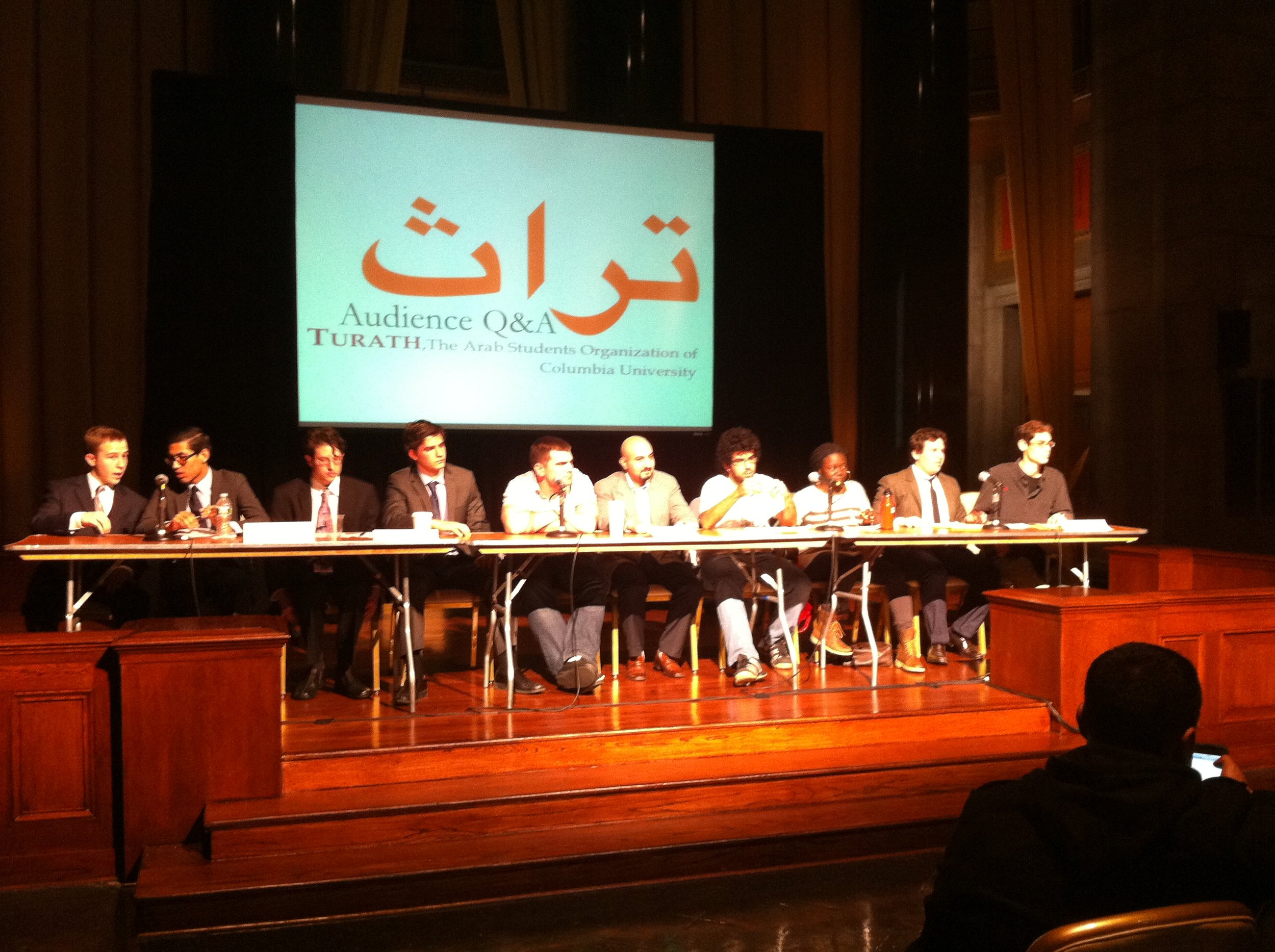Political Minutes: Turath Forum on Obama's Foreign Policy
 This is Columbia Political Review's new running feature – Political Minutes – where we provide coverage of political events happening across campus and New York City. If you know of an event or want coverage, let us know!
This is Columbia Political Review's new running feature – Political Minutes – where we provide coverage of political events happening across campus and New York City. If you know of an event or want coverage, let us know!
Turath, the Arab Students Group, hosted a debate last night on President Obama’s Middle East Foreign Policy that brought together the College Republicans, Democrats, Libertarians, Socialists, and The Current (Jewish-affairs magazine). CPR’s very own Hadi Elzayn gave the opening remarks prior to the debate, eloquently portraying the difficulties and complications associated with Middle Eastern policy. In their opening remarks, all groups set the stage for the perspectives through which they would be arguing for the night.
Breaking the debate into five main topics (Islamism & Extremism, Palestine & Israel Conflict, Religious Freedom, Women’s Rights, Markets & Development), Turath’s Deena Elkafrawi and Rhonda Shafei moderated the debate and later opened up the discussion to an audience Q&A.
The participants seemed to largely agree on their views on Islamism & Extremism, barring the Libertarians, who questioned why the United States must involve itself in Middle Eastern affairs at all and asserted that such action does nothing to reduce extremism in the Middle East. This piqued opposition from members of The Current magazine, and the Socialists, who pointed to the example of Libya in which intervention had an ostensibly positive outcome.
The Debate over the Palestine & Israel Conflict was the most heated of the night. The Republicans came out supporting a two-state solution, while the Socialists argued that a two-state solution was empirically unfeasible and would not end in a just outcome. Current took issue with a comment from the Socialists during their speech, referring to Israel as the “so-called Jewish State.” The Socialists responded, saying that calling Israel a Jewish state is by definition racist as it ignores the non-Jewish population that accounts for 20 percent of the state. While tensions seemed to be rising, the Libertarians drew some laughter from the crowd, remarking that Israel and Palestine are not on the United States’ map and should, therefore, not be an issue for Americans.
Later in the debate, all parties appeared to unanimously agree that democracy in the Middle East did not have to follow an American mold, with Republicans themselves pointing out that Iraq was a great example of the failure of blindly enforcing US values abroad. When asked if the United States should cut its aid to Egypt as a result of its crackdown on American NGOs, the Democrats responded with caution, stating that the United States should be patient and respect the sovereignty of Egypt. Following up on this, the Libertarians questioned why, if sovereignty was a key issue, the Libyan intervention took place, which served as a segue to the question posed by the moderators to the Socialists, asking if the United States should replicate the Libyan model to overthrow the authoritarian regime in Syria. Surprisingly, the Socialists, who previously commended the Libyan intervention, came out on the other side, arguing that such interventions cause more casualties and supplant the rebels’ message with imperialist policy. This inconsistency with their previous statement seemed to go unnoticed by the other participants.
A major theme that the moderators emphasized during the debate was how the United States should respond to Middle Eastern countries who advocate for cultural, religious, and political rights that would be unpalatable to Americans. The Socialists, Democrats, and Libertarians advocated for non-intervention and to continue engaging with these countries unless a gross human rights violation is present. Current, however, criticized Obama for being inconsistent in the regimes he chose to support and condemn. This led to an interesting response by the Democrats, who argued that, while the United States would love to see its form of democracy in other parts of the world, it does not have the luxury of working with only democratic nations and should act in its self-interest.
The audience Q&A mainly followed up on previous statements made by participants during the debate. Particularly, an accidental statement by the Republicans categorizing all extremism as Islamism became a point of contention. The topic of Iran was noticeably absent during the debate and came up during the Q&A, drawing a back and forth between Current and the Socialists over the legitimacy of Israel and the US opposing Iran’s right to a nuclear weapon.
Ultimately, the debate covered a vast range of issues pertaining to the Middle East. While the debate overall often digressed from the main purpose of the forum, discussing Obama’s policies, it was successful in facilitating a substantive conversation. An event bringing together so many different political perspectives is a remarkable feat for which the Turath board should be praised.
